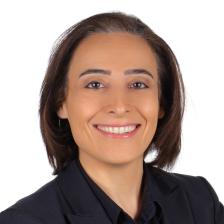
In Lebanon, RWI Launches Sixth Regional Knowledge Hub
The Revenue Watch Institute (RWI) has partnered with the Lebanese Center for Policy Studies (LCPS) to lay the groundwork for a regional “knowledge hub” that will be based in Beirut. Serving stakeholders in the Middle East and North Africa (MENA), the new hub will support civil society, media, parliamentary and government efforts to promote transparency and accountability in the governance of natural resources.
On March 6 and 7, 15 professors and experts from Lebanon and the MENA region designed the course framework in response to a high level of interest among civil society and media to understand and improve natural resource governance. Course curriculum will include civil society engagement, policy design, legal framework reform, transparency in fiscal regimes and revenue management, and accountable, responsible and liable expenditure. Two beginner courses “beginner” courses will each last five days, covering the entire decision chain. The first course will be offered in June 2014 and the second in October 2014.
Walid Khadouri, former editor-in-chief of the Middle East Economic Survey, a prominent weekly newsletter, said he supported the effort because of “shallow knowledge” of natural resource governance issues in the region to date. “The hub should aim to create its own information center to gather and disseminate information on oil, gas and mining,” he added.
Indeed, experts agreed that civil society and media cannot operate as change agents in their countries without the skills and knowledge to advocate for reform. To that end, the MENA hub will not only inform and improve natural resource governance, but also transform knowledge into action.
Laury Haytayan is RWI’s MENA Senior Associate
Since 2008, RWI has established six regional hubs in partnership with academic institutions to offer training and support for civil society organizations, members of parliament and journalists to help them analyze issues linked to oil, gas and mining, and develop robust advocacy campaigns. Learn more at the Regional Hubs page.
Authors

Laury Haytayan
Middle East and North Africa Director